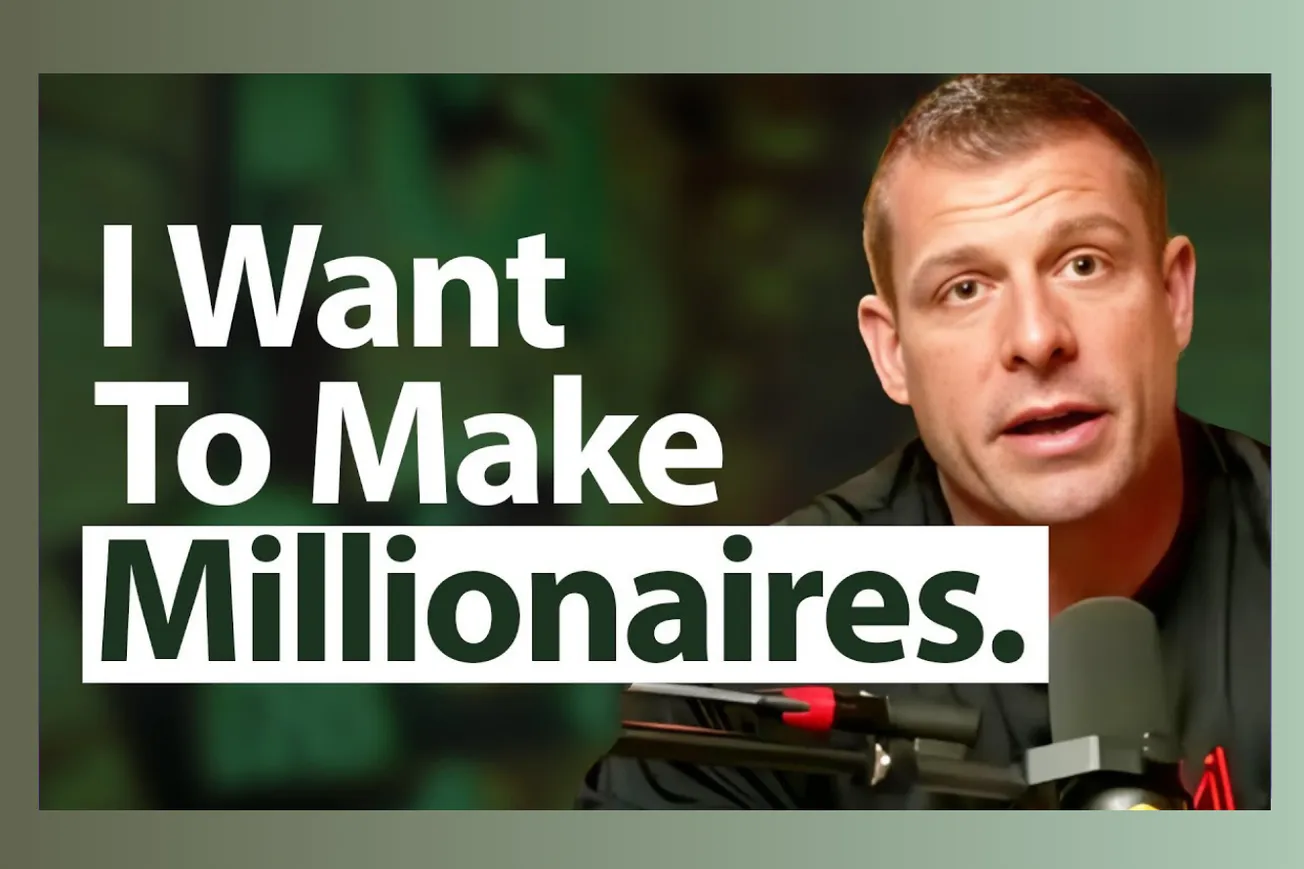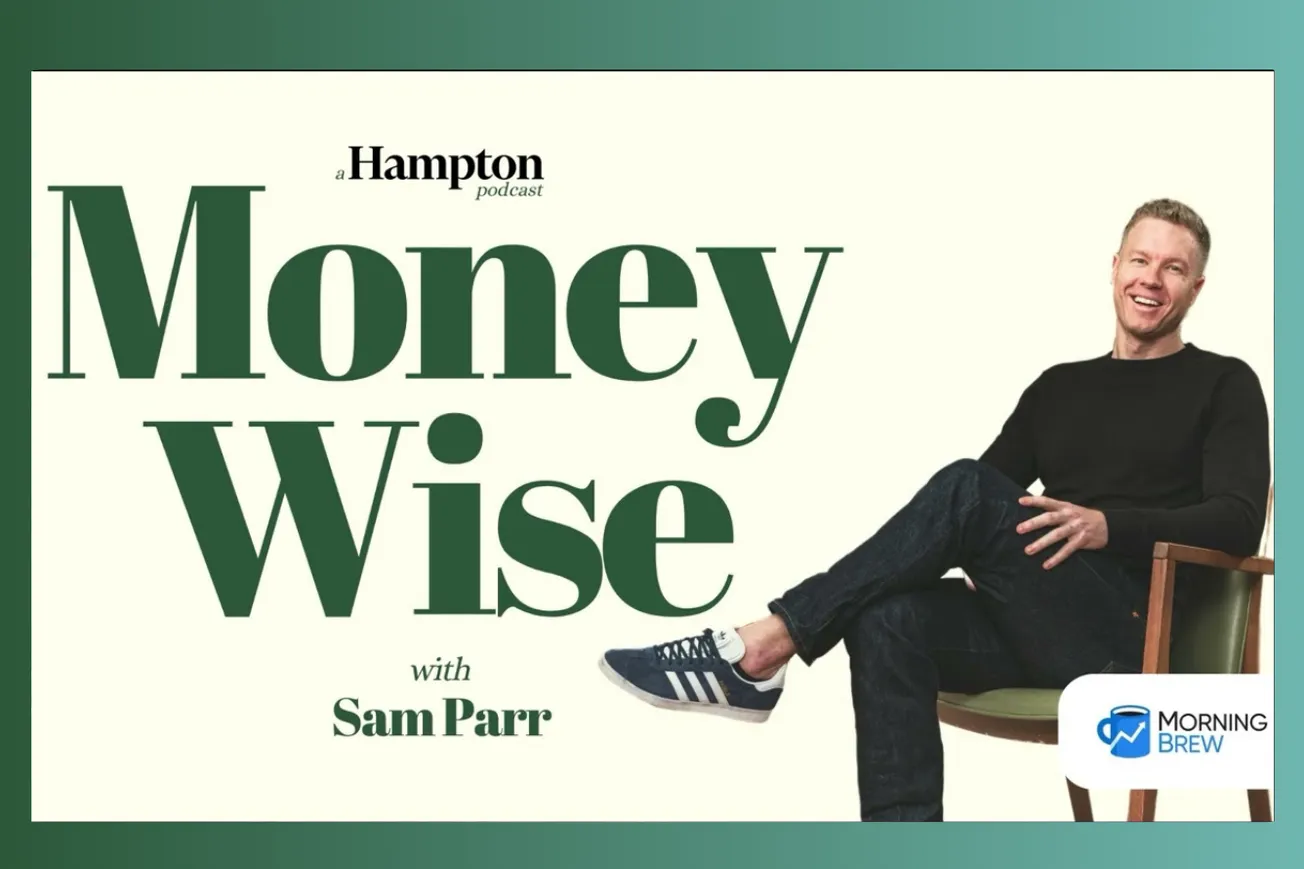Table of Contents
Former MLB pitcher Jacob Turner reveals how he transformed a $7 million signing bonus at age 18 into a thriving $112 million financial advisory business. Discover the mindset shifts, financial strategies, and practical lessons that helped him avoid the common pitfalls of sudden wealth and build lasting financial success beyond sports.
Key Takeaways
- Financial Education Starts Early: Jacob's foundation was built through family conversations and practical examples of money management from childhood.
- Restraint During Sudden Wealth: When Jacob received his first million-dollar check at 18, he imposed strict spending limits on himself, allowing time to understand his new financial reality.
- Learn from Others' Mistakes: The professional sports environment provided Jacob with countless examples of both good and poor financial decisions, which he used to inform his own choices.
- Plan for Career Transitions: Jacob spent significant time and effort preparing for life after baseball, recognizing that athletic careers are inherently temporary.
- Purpose Over Accumulation: Jacob's most important realization was that money's true value comes from its ability to create meaningful impact, not from accumulation for its own sake.
- Invest Within Your Expertise: Rather than diversifying across every possible investment type, Jacob focuses on areas where he has deep understanding and can make informed decisions.
- Time Value of Money Extends Beyond Returns: The impact of money spent or given today often exceeds the impact of larger amounts provided later, especially for life-changing moments like first home purchases or educational opportunities.
- Build Your Own Path: Jacob's success came from creating a business that aligned with his values, expertise, and desired lifestyle rather than following a traditional post-athlete career path.
Timeline Overview
0:00 - 01:59 - Jacob's Early Financial Foundation: Jacob grew up in St. Louis with financially prudent parents who instilled healthy money habits early on.
01:59 - 06:01 - Realizing Professional Potential: The moment Jacob recognized his talent could translate into a life-changing financial opportunity.
06:01 - 07:33 - Navigating Sudden Wealth: How Jacob handled his first $1.2 million check and resisted the temptation to make big purchases.
07:33 - 11:07 - Learning from Teammates' Financial Decisions: Witnessing the extreme wealth disparity in professional sports locker rooms and learning from others' mistakes.
11:07 - 15:52 - The Condensed Financial Timeline of Athletes: Understanding why athletes face unique financial challenges with compressed earning windows.
15:52 - 19:46 - The Reality of Post-Athlete Life: Confronting the transition from professional sports and the identity crisis that follows.
19:46 - 21:04 - Finding New Purpose: Jacob's systematic approach to discovering his next career path through networking and experimentation.
21:04 - 30:12 - Building Moment Private Wealth: How Jacob leveraged his experience to create a successful financial advisory firm serving athletes and entrepreneurs.
30:12 - 38:17 - New Investment Philosophy: Jacob's evolved approach to investing and spending money purposefully.
38:17 - End - The Value of Purpose Over Wealth: Why Jacob now prioritizes impact and purpose over pure wealth accumulation.
Jacob's Early Financial Foundation
Jacob's financial wisdom didn't emerge from nowhere. Growing up in St. Louis, he was raised by parents who understood money management fundamentals. His father owned a small business generating a couple hundred thousand in revenue annually, while his mother brought accounting expertise to the household.
"One of the things that I see a lot is where we come from dictates a lot of what our financial decisions are later in life," Jacob reflects. The family had practical systems in place—like a cash drawer for discretionary spending that determined whether they could afford to go out to eat on weekends.
This early exposure to living below their means became Jacob's financial foundation. Even as a child, he was curious about how businesses made money, often wondering about the various enterprises in his neighborhood and what made them successful.
Practical Insight: Start financial education early in the family. Create visible systems (like the cash drawer) that help children understand the connection between available money and spending decisions.
Realizing Professional Potential
Jacob never assumed he'd become a professional baseball player, despite his talent. "Growing up I never thought that I was going to be a professional baseball player—that was my dream, but I'm also relatively a realist to understand that the odds of that happening were pretty low."
The turning point came when Jacob was 16-17 years old, recognizing that his skill level could create a professional opportunity. However, he maintained a pragmatic approach: if he didn't receive what he considered a "life-changing amount of money," he planned to attend college instead.
This mindset proved crucial—Jacob approached his potential professional career as a business decision, not just following a dream.
Practical Insight: Even when pursuing passion projects or dream careers, maintain a realistic assessment of opportunities and have backup plans. Set clear financial thresholds for major life decisions.
Navigating Sudden Wealth
When Jacob signed his $7 million contract, the first check he received was $1.2 million—after taxes. "The biggest thing I remember about it was how much came out from taxes because as an 18-year-old I never even paid taxes before."
Rather than celebrating with expensive purchases, Jacob made a remarkable decision: he paid himself only $1,000 per month for living expenses. For an entire year and a half, he made virtually no major purchases, with his biggest splurge being a $1,500 MacBook Pro.
"Not buying something that was a massive purchase whether it was a house or whether it was a new car was the best thing that I ever did," Jacob explains. This restraint gave him time to understand his financial situation and determine what truly mattered to him.
Practical Insight: When receiving sudden wealth, impose a waiting period before making major purchases. Pay yourself a modest "salary" while you learn about your new financial reality and tax obligations.
Learning from Teammates' Financial Decisions
The professional sports locker room provided Jacob with a masterclass in wealth psychology. He witnessed extreme wealth disparities—players who signed for essentially nothing sitting next to teammates earning $25 million annually.
"There's no greater gap than a professional sports locker room," Jacob observes. He watched teammates buy Mercedes-Benz vehicles on impulse during dealership visits and spend tens of thousands at malls after receiving paychecks.
The compressed payment schedule of professional sports exacerbates poor financial decisions. Baseball players might receive only 12 checks during the playing season, meaning a $24 million annual salary translates to $2 million payments every two weeks.
Jacob identified a critical psychological trap: "The confidence that you have to have to be able to play sports at the highest level can also be your biggest detriment when it comes to money."
Practical Insight: Be aware of how your professional confidence might create blind spots in financial decision-making. Observe others' financial behaviors critically, learning from both their successes and mistakes.
The Condensed Financial Timeline of Athletes
Athletes face a unique financial challenge: they experience their peak earning years from ages 18-30, then must transition to new careers. This compressed timeline creates both opportunities and risks.
"You get to go through essentially the entire cycle that somebody else gets to go through for their entire life," Jacob explains. While most people gradually build wealth over decades, athletes must learn to manage significant wealth immediately.
This creates an advantage: athletes can make financial mistakes early and learn from them while still having earning potential. However, it also means the margin for error is smaller since careers can end abruptly due to injury or performance decline.
Jacob's biggest fear was becoming another statistic featured in ESPN's "30 for 30: Broke" documentary, which highlighted athletes who lost their fortunes after retirement.
Practical Insight: If you experience rapid wealth accumulation in any field, recognize that you're living a compressed financial timeline. Use this awareness to make more deliberate decisions about spending and saving.
The Reality of Post-Athlete Life
At age 29, Jacob faced retirement with two major concerns. First, the psychological challenge of transitioning from steady paychecks to living off accumulated wealth: "For the last 10 plus years I've been seeing this account balance go up... when you don't have that steady income anymore you're richer on paper than you've ever been, yet for me I felt poorer than I've ever been."
Second, the identity crisis: "The first two questions that somebody asks you is what is your name and then they ask you what do you do." As an active player, Jacob could proudly say he was a professional athlete. Post-retirement, that became "I used to be a professional athlete."
The harsh reality is that most athletes don't end their careers on their own terms, and the phone stops ringing quickly after retirement. "Unless you are a really big baseball fan, you're not going to know who Jacob Turner is a week after he gets done playing."
Practical Insight: Prepare for career transitions by developing skills and networks outside your primary profession. Don't let your identity become entirely tied to one role or achievement.
Finding New Purpose
Jacob approached his career transition systematically, conducting 20-30 informational interviews with successful people in his network. His key question: "If you could do it all over again, would you do the same thing that you're doing?"
This process helped him understand not just what different careers offered, but what lifestyle sacrifices they required. When considering investment banking, for example, he learned about the 15-hour days and six-day weeks required for advancement. With his financial security already established, Jacob decided those sacrifices weren't worth it.
He tested his interest in financial advising by working for six months at a friend's firm, earning minimal wages but gaining invaluable experience. "I would have made probably more money being a Domino's pizza driver, but I learned an incredibly valuable amount of skills."
Practical Insight: Use informational interviews to understand both the rewards and sacrifices of potential career paths. When possible, test new interests through low-risk experiences before making major commitments.
Building Moment Private Wealth
Jacob's transition into entrepreneurship was calculated rather than impulsive. After his six-month financial advising experience, he realized he wanted to help others navigate the same wealth complexities he had faced, but in a way that matched his financial goals.
"I wanted to do something in business but I wanted to do something that if it blew up it didn't ruin my financial situation," Jacob explains. His existing wealth allowed him to take measured risks in building his business.
Today, Moment Private Wealth manages over $112 million in client assets and is worth several million dollars. Jacob's tagline captures his mission: "We work with people that bet on themselves—the athlete, the entrepreneur, the business owner."
The business provides Jacob with something his baseball career couldn't: a sense of control and the ability to build something entirely his own. "There's levers that I can pull, there's dials that I can turn that if I want to go more all in certain aspects it's going to create a higher level of wealth or income in the future."
Practical Insight: When starting a business, align your risk tolerance with your financial situation. Having financial security can allow you to make more patient, strategic decisions rather than being forced into high-pressure situations.
New Investment Philosophy
Jacob's approach to investing has evolved significantly since his playing days. His current thesis is simple: "I want to try to earn the greatest return I can for the longest time period possible, and if I'm willing to earn a little bit less return to be able to stay in the game longer, I'm willing to do that."
He focuses more on downside protection than upside potential and only invests in things he understands. While he started with diversified stock market investments, he's gradually shifted toward privately held businesses as his expertise in that area has grown.
"I don't invest at all in venture capital—it's not because it's not a good investment, I don't understand it," Jacob explains. This disciplined approach keeps him within his circle of competence.
Practical Insight: Develop deep understanding in specific investment areas rather than trying to diversify across everything. Focus on downside protection and staying power rather than chasing maximum returns.
The Value of Purpose Over Wealth
Perhaps the most significant evolution in Jacob's thinking concerns the purpose of money itself. Working with clients ranging from young entrepreneurs to elderly retirees has shifted his perspective dramatically.
"Time and time again I think for people that are in that situation, the common frame I hear is 'I wish I would have done this sooner,'" Jacob says about successful older clients who delayed spending on meaningful experiences and purchases.
This insight has changed Jacob's behavior: "I've spent more money in the past two years than I had ever spent previously." He's become comfortable knowing what's important to him and using money to impact the people around him.
Jacob's philosophy on inheritance is particularly striking: "If I were to pass away at 80 years old and pass on whatever inheritance that would be, what impact would that have on their life? It might have an impact on their net worth, but... the nominal impact would be far less than if I would have been able to give even a quarter or a tenth of that money when they were coming out of school."
Practical Insight: Money's value lies in its ability to create impact while you can witness and direct it. Consider the timing of financial gifts and experiences—earlier often provides more meaningful impact than later.
Conclusion
Jacob Turner's journey from teenage millionaire to successful entrepreneur offers a masterclass in financial wisdom and life planning. His story demonstrates that sudden wealth, while challenging, can be managed successfully with the right mindset, education, and support systems. Most importantly, it shows that true financial success isn't measured just by accumulation, but by the purposeful use of resources to create meaningful impact in your own life and the lives of others.
The lesson for all of us—whether we're managing sudden wealth or building it gradually—is that financial success requires both the discipline to grow resources and the wisdom to use them purposefully. Jacob's transformation from a cautious teenager to a confident entrepreneur shows that with the right approach, money can be a tool for building not just wealth, but a truly fulfilling life.









